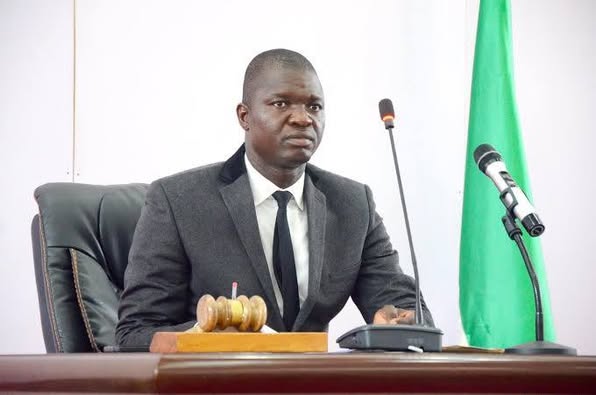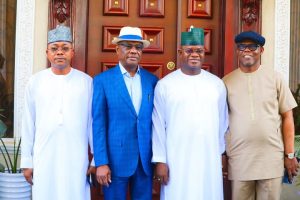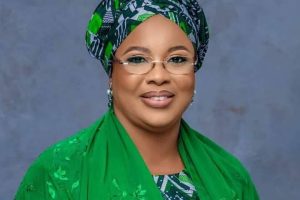Governor Francis Nwifuru May Be Suffering From Persecution Complex
In an age when governance demands clarity of purpose, emotional intelligence, and inclusivity, Ebonyi State Governor Francis Nwifuru risks becoming the poster child of a psychological malaise that could stunt the social and political maturity of his people. That malaise is persecution complex.
A persecution complex, by clinical and social definitions, is a belief that one is being persistently oppressed, mistreated, or discriminated against, often without objective basis. When such a disposition is personalized, it may cause harm to the individual alone. But when a sitting governor infuses it into statecraft, dresses it in ethnic robes, and disseminates it as policy or political ideology, the consequences become corrosive — divisive at best, destructive at worst.
Such appears to be the growing pattern of Governor Nwifuru’s administration. His repeated references to the “Onye Ebonyi” identity — not as cultural pride but as a rallying cry against imagined scorn from other Igbos and Nigerians — raise deep concerns about whether he is governing from a place of principle or paranoia.
YOU MAY READ
Senator Onyeka Nwaebonyi Shares His Account of Exchange with Oby Ezekwesili During Public Hearing
Governor Nwifuru’s most revealing moment yet came during his second anniversary lecture in office. While responding to the now-viral spat between Senator Onyekachi Nwebonyi and former Education Minister Dr. Oby Ezekwesili, the governor offered a commentary so laden with victimhood and identity fragility that it sent a chill through political observers.
His words:
“I truly commend Senator Onyekachi Nwebonyi for standing his ground when Oby Ezekwesili called him a hooligan at a Senate hearing. The woman did that because Nwebonyi is from Ebonyi and could not have done so if he was from Kano, Anambra or any other state. Nwebonyi’s defence was not only for himself but the entire state, as people should not look down on us anymore.”
First, Oby Ezekwesili did not call Nwebonyi a hooligan because he is from Ebonyi — she did so (rightly or wrongly) because she felt insulted during a parliamentary engagement where political tensions often run high. Political figures exchange sharp words every week across ethnic lines. To localize what was clearly a personal disagreement into an ethnic affront is both misleading and dangerous.
Second, the Governor’s framing — “people should not look down on us anymore” — reveals the emotional root of his governance philosophy: Ebonyi, in his mind, is a bullied underdog in constant need of defense, even in the absence of actual attack.
This is persecution complex — not leadership.
Governor Nwifuru’s political persona has increasingly been couched in the rhetoric of “Onye Ebonyi,” a term which, if used with cultural pride, could be constructive. But in the Governor’s hands, it has become a defensive badge, weaponized to shame critics, rebuke perceived slights, and stir up local sentiments of exclusion from the wider Igbo or Nigerian family.
The subtext is clear: We, the Ebonyi people, are not respected. The others think we are bush. We must stand up for ourselves.
The irony is painful. For a man with the enormous privilege and responsibility of leading a vibrant, resource-rich, and historically resilient state, one would expect Governor Nwifuru to have outgrown these insecurities.
YOU MAY READ
Oby Ezekwesili Shares Her Account of Altercation with Senator Nwaebonyi
Yet, time and again, he returns to this narrative — blaming perceived slights from other Igbo states like Anambra, Enugu, and Imo as reasons to reinforce insular policies, deepen political loyalty, and personalize state pride around himself and his political allies.
The artificial wall that Nwifuru is trying to build between Ebonyi and other parts of Igboland is not only misguided but historically false. Ebonyi is not an outsider in Igbo affairs. Ebonyi is not a fringe state. Ebonyi is not inferior.
The same blood that flows in Awka flows in Abakaliki. The same cultural ties that bind Nnewi bind Afikpo. The same ancestral proverbs that ring in Enugu-Ezike echo in Ezza.
I recently used my own social media platform to raise funds for Kosarachukwu, a brilliant young girl from Ebonyi State who lives in my village with her parents — people I also sponsor in school. In less than 48 hours, we raised more than enough to take care of her educational needs, with donations pouring in from across Nigeria.
Nobody asked me whether she was from Abakaliki, Onueke, or Ohaukwu. Nobody refused to help because she was “Onye Ebonyi.” They helped because they saw a child in need, a family worth lifting. They helped because we are one people.
The only person pushing the “us versus them” narrative is Governor Nwifuru.
When a Governor starts seeing conspiracies in criticisms, insults in disagreements, and prejudice in routine inter-personal conflicts, governance becomes impossible. Policies become reactionary. Appointments become nepotistic. Programs lose strategic value and become emotional compensation for imagined injury.
Worse still, paranoia spreads like a virus. A leader who constantly preaches victimhood seeds it among his people. Young people grow up believing they are not enough. Civil servants start looking suspiciously at visitors from other states. Businessmen develop inferiority complexes, or worse, adopt fraudulent defiance. And the state becomes defined not by excellence, but by an obsession with being “seen and respected.”
That is no way to build a society.
Governor Francis Nwifuru is not a powerless man. He is not some beleaguered activist on the margins of national politics. He is a sitting Governor. He controls a vast network of government parastatals, education agencies, security collaborations, and economic potential. He represents a people with a proud legacy of industry, resilience, and resourcefulness.
Ebonyi is not some charity case or underdog begging for respect. It is a state with one of the fastest-growing capitals in the South-East, a budding rice revolution, impressive cement and salt deposits, and a diaspora known for its grit.
So why is its Governor acting like a rejected schoolboy begging for validation?
Why squander the currency of political capital on petty defensiveness, instead of visionary leadership?
A leader’s job is to lift his people, not coddle their insecurities. It is to call them to a higher moral and intellectual plane — to stretch their minds beyond perceived injuries and toward collective greatness.
Imagine if instead of validating conspiracy theories about ethnic disdain, Governor Nwifuru had said:
“I understand why people are upset at the exchange between Senator Nwebonyi and Madam Ezekwesili. But let us use this moment to recommit to civility in public discourse, to assert our dignity not in anger but in excellence. We do not rise by defending ourselves with fury; we rise by building legacies that cannot be ignored.”
Now that would be leadership.
But when a Governor claps for a Senator not for legislative brilliance, but for exchanging insults on behalf of a state, one begins to wonder if the entire political system has been reduced to emotional therapy.
The danger of persecution complex in politics is that it personalizes everything. Disagreement becomes betrayal. Debate becomes attack. Constructive criticism becomes “enemy action.” And soon, entire policies are created not to solve problems but to settle imagined scores.
We are seeing this play out in Ebonyi. The culture of “if you are not with me, you are against us” is growing. The politicization of appointments based on blind loyalty is on the rise. Even the traditional institution is now caught in the crossfire of a government that cannot tolerate dissent.
From sacking local monarchs perceived as critical, to rewarding loud loyalists with government largesse, the entire system seems wired for insecurity rather than inspiration.
These challenges will not be solved by clapping for a Senator who insulted a former Minister. They will not be solved by nursing ethnic wounds that no one inflicted. They will be solved by visionary policies, inclusive politics, and a determination to make Ebonyi a reference point for innovation, not grievance.
Dear Ebonyians, you are not less. You are not weak. You are not afterthoughts in Igbo history or Nigerian politics. Your legacy predates colonialism. Your contributions to Nigeria’s independence, business, culture, and survival during the Civil War are etched in history.
Do not allow yourselves to be defined by any leader’s psychological insecurities. Demand better. Demand growth. Demand vision.
The best way to command respect is not by shouting louder or fighting harder — it is by building something so undeniable, so excellent, that the world must notice.
Governor Francis Nwifuru still has time to change course. He still has the political clout, the youthful energy, and the platform to chart a new path for Ebonyi. But that journey will begin only when he drops the burden of imagined persecution, sheds the victim’s toga, and wears the robe of a visionary.
You cannot lead a state if you are always trying to prove that people are looking down on it. Leadership is not about fighting ghosts. It is about building realities. And if Governor Nwifuru truly loves Ebonyi, he must do the hard work of turning pain into power — not propaganda.
Ebonyi deserves a leader who does not just see enemies in every corner, but possibilities in every citizen. A leader who is too focused on nation-building to be distracted by name-calling.
Until then, the cloud of persecution complex will continue to hover — not just over the Governor, but over a state that deserves so much more.





